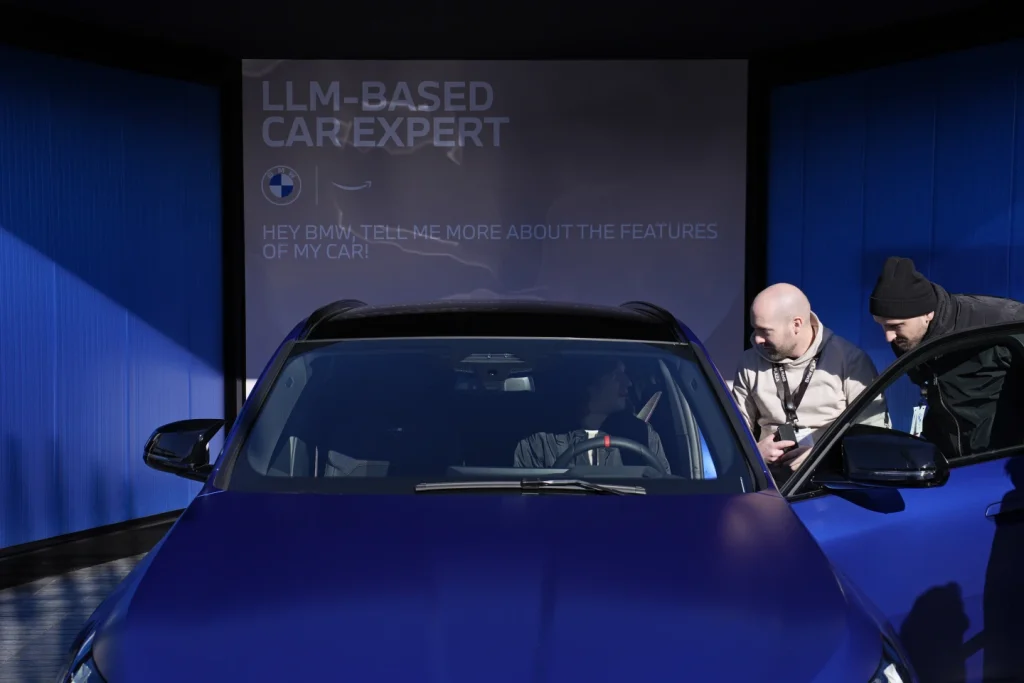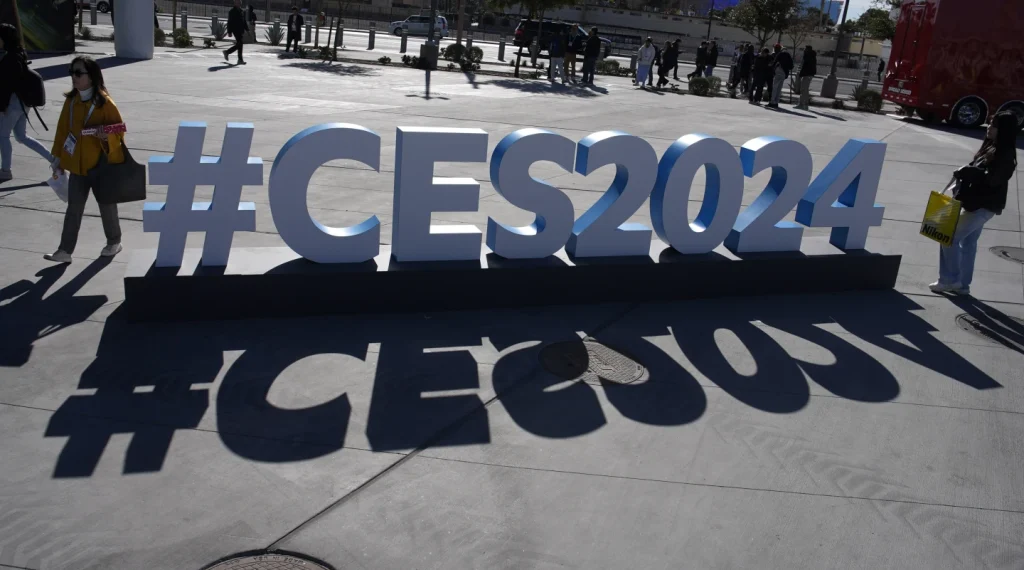The Consumer Electronics Show (CES) in Las Vegas serves as a platform for showcasing the latest technological innovations.
Amidst the glitz and glamour, the event often unveils products that have the potential to significantly impact our lives, either for the better or for the worse.
This dichotomy of innovation was highlighted in the recent announcement of the “Worst in Show” awards, where a panel of experts identified products that could pose risks to safety, encourage wasteful consumption, and normalize privacy violations.
The panel, comprised of consumer and privacy advocates from organizations such as Consumer Reports, the Electronic Frontier Foundation, and iFixit, meticulously assessed the products based on their potential negative impact, the extent of their adverse effects if widely adopted, and their comparative inferiority to previous iterations of similar technologies.
Their discerning evaluation led to the identification of products that were deemed as “Worst in Show,” drawing attention to the darker side of technological advancement.
One such recipient of this dubious honor was a collaboration between carmaker BMW and Amazon’s voice assistant, Alexa.
While the integration of Alexa into vehicles promises enhanced convenience and a more natural interaction, concerns were raised about the potential misuse of this technology in cases of domestic abuse.
The judges highlighted the alarming trend of cars being used as tools for tracking and abuse in abusive domestic situations, particularly for individuals attempting to escape such circumstances.
This raised crucial questions about the ethical implications of turning cars into surveillance devices and the necessity for measures that allow victims to safeguard themselves from potential harm.
The recognition of such products as “Worst in Show” serves as a stark reminder of the responsibility that technology companies bear in ensuring that their innovations do not inadvertently contribute to societal harm.

It underscores the need for ethical considerations and comprehensive risk assessments in the development and deployment of new technologies.
Furthermore, it emphasizes the importance of empowering individuals to maintain control over their privacy and safety in an increasingly interconnected world.
The “Worst in Show” awards not only spotlight the potential pitfalls of technological advancements but also prompt a critical reevaluation of the ethical, social, and environmental implications of innovation.
As the boundaries of technological progress continue to expand, it is imperative that stakeholders across industries prioritize the ethical ramifications of their creations.
By doing so, they can contribute to a future where technological advancements truly enhance lives without compromising fundamental values and principles.
In conclusion, the “Worst in Show” awards at CES serve as a sobering reminder of the dual nature of technological innovation.
While some products hold the promise of positive transformation, others have the potential to inflict harm on individuals, society, and the planet.
The recognition of such products underscores the imperative for ethical considerations, responsible innovation, and the protection of individual rights in the ever-evolving landscape of technology.
As we navigate the complexities of technological progress, it is essential to remain vigilant and proactive in addressing the challenges posed by innovations that could have adverse consequences.
Only through a concerted effort to prioritize ethical and societal well-being can we ensure that technological advancements truly serve the betterment of humanity.
The intersection of technology and privacy has become an increasingly important topic in today’s society. As companies continue to innovate and introduce new products and services, questions about the protection of consumer data and the potential for distraction and obtrusion in daily life have come to the forefront.
In a recent statement, BMW Group spokesperson Jay Hanson emphasized the company’s commitment to privacy and customer choice in the context of their voice assistant technology.
According to Hanson, BMW and Amazon have prioritized maintaining customer trust and safeguarding their privacy, offering individuals the option to control their data usage.
This assertion reflects a growing awareness within the industry of the need to balance technological advancement with the protection of personal information.
As companies develop and implement new features and services, it is crucial that they remain mindful of the potential impact on user privacy and provide mechanisms for individuals to manage and protect their data.

In addition to voice assistant technology, BMW has also introduced augmented-reality glasses designed by Xreal, which aim to overlay useful information and virtual objects onto the driver’s field of vision.
While this innovation presents exciting possibilities for enhancing the driving experience, concerns have been raised regarding potential distractions and the intrusion of vision-obscuring advertisements.
Hanson emphasized that BMW is dedicated to minimizing driver distraction and ensuring that any new features or technologies are implemented with this principle in mind.
This commitment to safety and responsible innovation underscores the importance of considering the broader societal implications of technological advancements.
Meanwhile, in the realm of audio electronics, Sennheiser unveiled the fourth generation of its Momentum True Wireless ear headphones at a recent event.
Despite their reputation for durability, these new earbuds have sparked criticism from iFixit CEO Kyle Wiens, who labeled them a “betrayal of the brand” due to concerns about their disposability.
Wiens pointed out that the earbuds contain three separate batteries that are likely to fail after a few years, raising questions about their long-term sustainability and repairability.
His call for the availability of replacement batteries and repair instructions underscores the growing demand for more sustainable and environmentally conscious product design and manufacturing practices.
The issues raised by these developments highlight the complex interplay between technological innovation, consumer privacy, and sustainability.
As companies continue to push the boundaries of what is possible with new products and services, it is essential that they remain cognizant of the broader societal impact of their innovations.
This includes addressing concerns about privacy, minimizing potential distractions, and embracing sustainable design principles to ensure the longevity and repairability of their products.
In conclusion, the statements from BMW Group and the reactions to Sennheiser’s latest product release underscore the need for ongoing dialogue and scrutiny regarding the ethical and societal implications of technological advancements.
As we navigate an increasingly interconnected and technologically driven world, it is imperative that companies prioritize privacy, safety, and sustainability in their pursuit of innovation.
Only by doing so can they build and maintain the trust of consumers and contribute to a more responsible and ethical technological landscape.
In the fast-paced and ever-evolving realm of technology, it is crucial for companies to continually assess and address the ethical and societal implications of their innovations.
By prioritizing privacy, safety, and sustainability, companies can not only build trust with consumers but also contribute to a more responsible and ethical technological landscape.
In recent years, the intersection of technology and consumerism has led to a proliferation of innovative products aimed at enhancing convenience, efficiency, and connectivity in our daily lives.
However, as the boundaries of technological advancements are continuously pushed, concerns regarding privacy, environmental impact, and ethical marketing practices have come to the forefront.
The emergence of new grocery ads on AI-powered shopping carts, along with the introduction of intrusive home surveillance devices and environmentally questionable appliances, has sparked a debate about the ethical implications of these innovations.
Nathan Proctor, the national campaign director for U.S. PIRG, a prominent consumer advocacy group, has raised serious concerns about the new video ads on Instacart’s AI-powered shopping carts.
These carts, equipped with cameras and sensors, offer real-time recommendations based on customers’ shopping behavior, effectively targeting them with personalized advertisements.
Proctor’s criticism of these ads revolves around the use of historic shopping behavior to promote potentially unhealthy products, contributing to the overwhelming nature of grocery shopping.
The implications of this marketing strategy raise questions about its impact on consumer well-being and the ethics of leveraging personal data for commercial gain.
Moreover, the introduction of the X2 Combo by China-based robot vacuum-maker Ecovacs has raised alarms within the cybersecurity community.
This new device integrates various surveillance features, including cameras, microphones, LiDAR, voice recognition, and computer vision capabilities, without ensuring the security of its data transmission.
Paul Roberts of Secure Repairs has highlighted the potential risks associated with unencrypted images or video feeds, emphasizing the need for robust security measures to protect consumer privacy.
The convergence of home appliances with surveillance technology underscores the ethical dilemmas surrounding the unchecked proliferation of intrusive devices in domestic spaces.
In the realm of environmental impact, the unveiling of Revolution Cooking’s “macrowave” at CES 2024 has drawn criticism from environmental advocates.
This $1,800 appliance, which combines a microwave with a convection oven, raises concerns about the unnecessary electronic augmentation of functional appliances.
Shanika Whitehurst of Consumer Reports has pointed out that such trendy gadgets often lead to the premature disposal of perfectly functional devices, significantly increasing environmental footprints.
The rapid turnover of consumer electronics and the associated resource consumption pose significant challenges to sustainable consumption and environmental stewardship.
The ethical implications of these developments underscore the need for a critical examination of the evolving landscape of consumer technology.
As companies continue to push the boundaries of innovation, it is imperative to consider the broader societal impacts of these advancements.
The convergence of data-driven marketing, surveillance technology, and environmental sustainability demands a nuanced approach that prioritizes consumer welfare, privacy protection, and ecological responsibility.
In response to these concerns, it is essential for regulatory bodies, industry stakeholders, and consumer advocacy groups to engage in constructive dialogue to establish ethical guidelines for the development and deployment of consumer technologies.
This includes promoting transparent data practices, robust security standards, and sustainable design principles.
Furthermore, fostering consumer awareness and empowerment through education and advocacy can help individuals make informed choices and advocate for responsible technological development.
In conclusion, the emergence of new grocery ads, intrusive home surveillance devices, and environmentally questionable appliances has reignited the discourse on the ethical implications of consumer technology.

As we navigate this rapidly evolving landscape, it is paramount to uphold ethical standards that prioritize consumer well-being, privacy protection, and environmental sustainability.
By fostering a culture of responsible innovation and ethical marketing practices, we can strive towards a future where technological advancements enrich our lives without compromising our fundamental values and rights.
